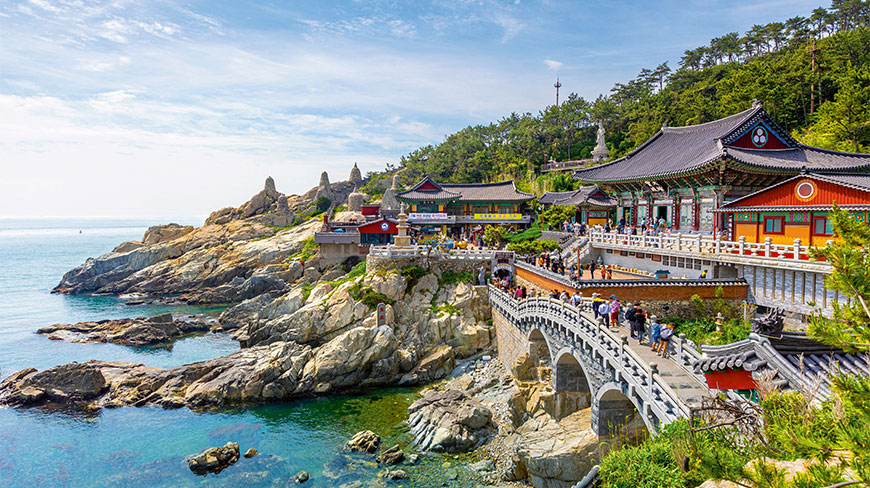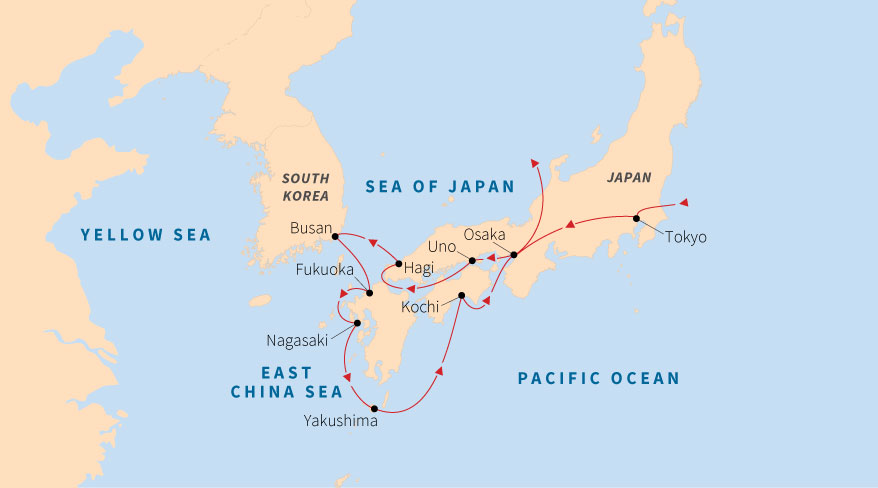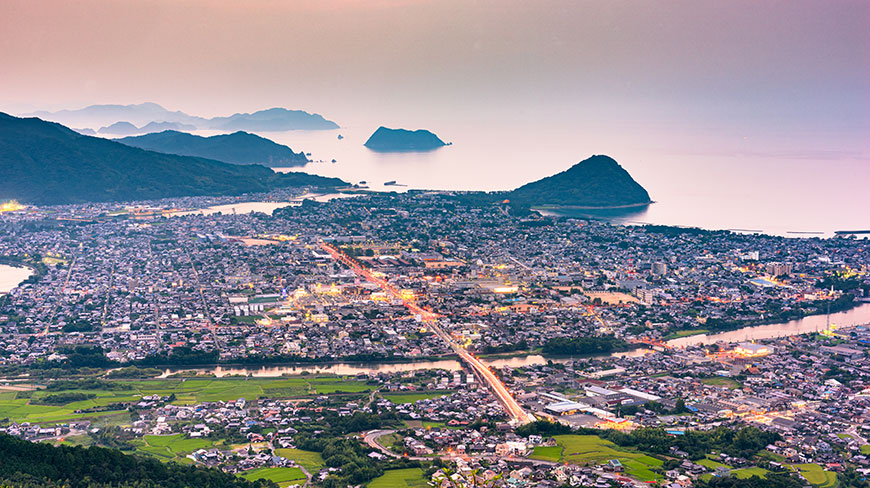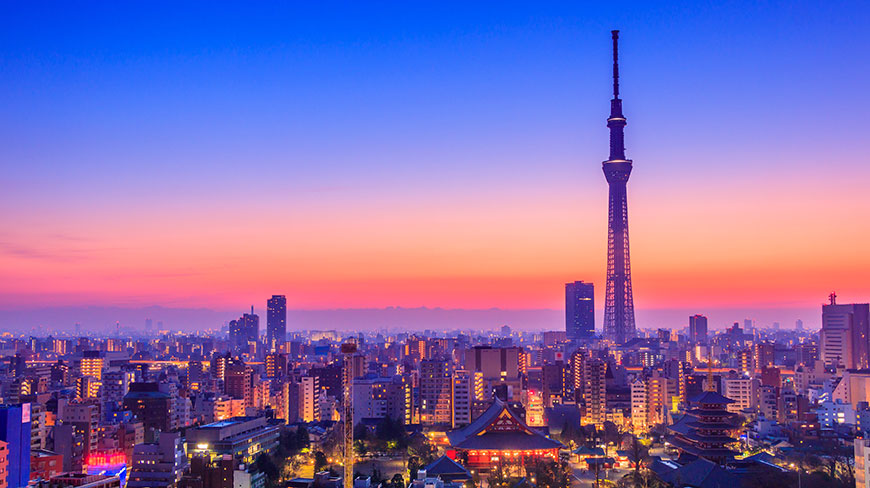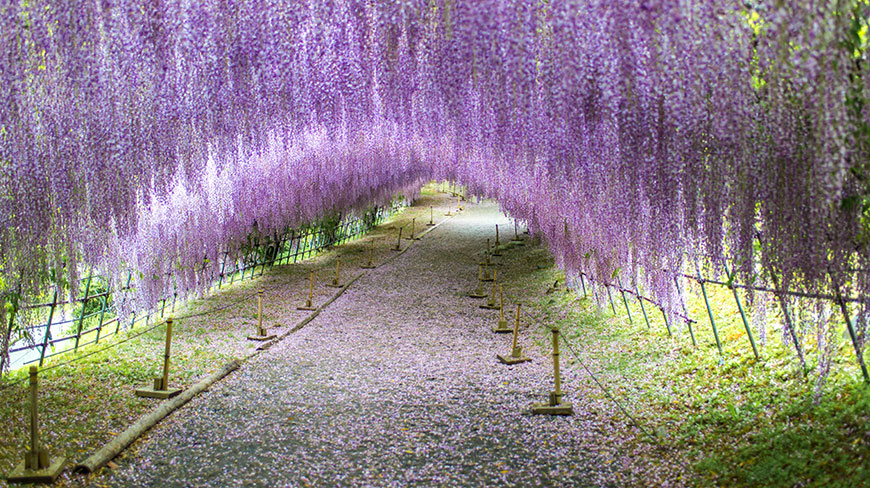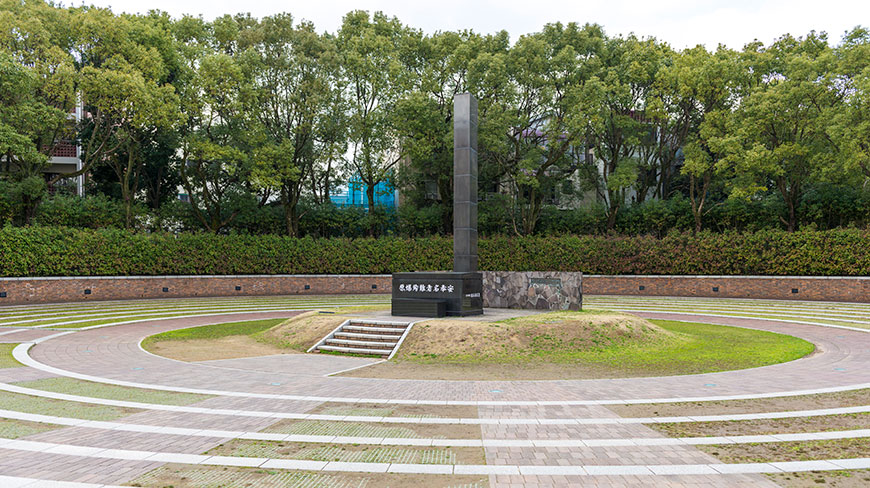A Traveler's History of Japan
by Richard Tames
A lively and concise narrative history of Japan and its transformation from Shinto, Shogun and Samurai traditions to 20th-century powerhouse.
Culture Smart! Japan
by Paul Norbury
A concise, no-nonsense guide to local customs, etiquette and culture, this is a helpful travel tool for visitors to Japan.
Eyewitness Guide Japan
by Eyewitness Guides
Dazzling illustrations, architectural cutaways and color photographs, along with useful local maps, give this guide to Japan's many attractions a distinct edge.
Japan's Cuisines
by Eric C. Rath
This illustrated overview charts the transformation of Japanese cuisine over the ages, revealing the influences of private and public institutions, exploring the rise of tea and showing how lunch became a gourmet meal.
Learning to Bow, Inside the Heart of Japan
by Bruce Feiler
As surprising, helpful and informative as it is funny, this is an insightful account of travels and teaching in Japan. Feiler presents anecdotes on the rituals, personality traits and cultural peccadilloes of the Japanese.
Memoirs of a Geisha, A Novel
by Arthur Golden
The runaway best-selling novel about a geisha in the celebrated Gion district of Kyoto. A major feat of literary impersonation, the novel is rich in period detail and ceremony.
Super Sushi Ramen Express
by Michael Booth
Using keen insight and sarcastic wit, Booth describes the cuisine and culture of Japan as he recaps the nearly three months-long foodie road trip he and his family took through the island nation. A fun journey, sure to both entertain and inform.
The Book of Tokyo: A City in Short Fiction
by Michael Emmerich (Editor)
This anthology of contemporary Japanese short stories was edited with the traveler in mind. The ten pieces of literature, mystery, science fiction and horror form an imaginary tour of the city of Tokyo.
The Dog Shogun
by Beatrice Bodart-Bailey
Arguably one of the most notorious figures in Japanese history, Tsunayoshi (1646 to 1709) was viewed as a tyrant with eccentric policies, including the Laws of Compassion, which made maltreatment of dogs an illegal offense, punishable by death. Bodart-Bailey delves deep into the shogun’s life, offering an engaging and brilliantly researched biography of the fifth Tokygawa shogun.
The Samurai
by Shusaku Endo
This historical novel by one of Japan's best-known modern writers is set in the world of the 17th-century Samurai. A Roman Catholic, Endo explored Christianity and morals in his many novels and stories.
Thousand Cranes
by Yasunari Kawabata, Edward G. Seidensticker (Translator)
This novella by the great Kawabata may be Japan's best-known literary work, a story of love, grief and redemption. Kawabata's prose is as economical as the tea ceremony itself and very beautiful.
Tokyo, A Biography
by Stephen Mansfield
In his 500-year history of Tokyo, Mansfield presents the Japanese capital as an "indestructible organism" that has survived bombs, earthquakes and radiation and continues to thrive. An easy introduction to a fascinating city.
Walking the Kiso Road: A Modern-Day Exploration of Old Japan
by William Scott Wilson
William Scott Wilson travels along the ancient Kiso Road, historically used by samurai and warlords and relatively unchanged today. As he makes his way, Wilson engagingly ruminates on Japanese history, culture and folklore.
Where the Dead Pause, and the Japanese Say Goodbye
by Marie Mutsuki Mockett
When her American father passes away, Mockett seeks consolation in her mother’s home country of Japan. She visits a radiation zone, a Buddhist school, temples and festivals in an effort to understand the Japanese way of grieving, to bury her dead and find healing.














